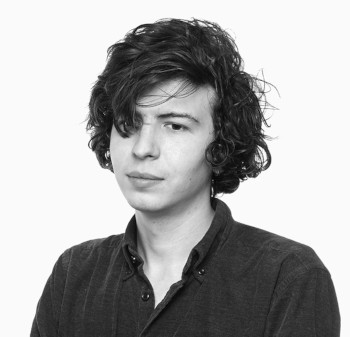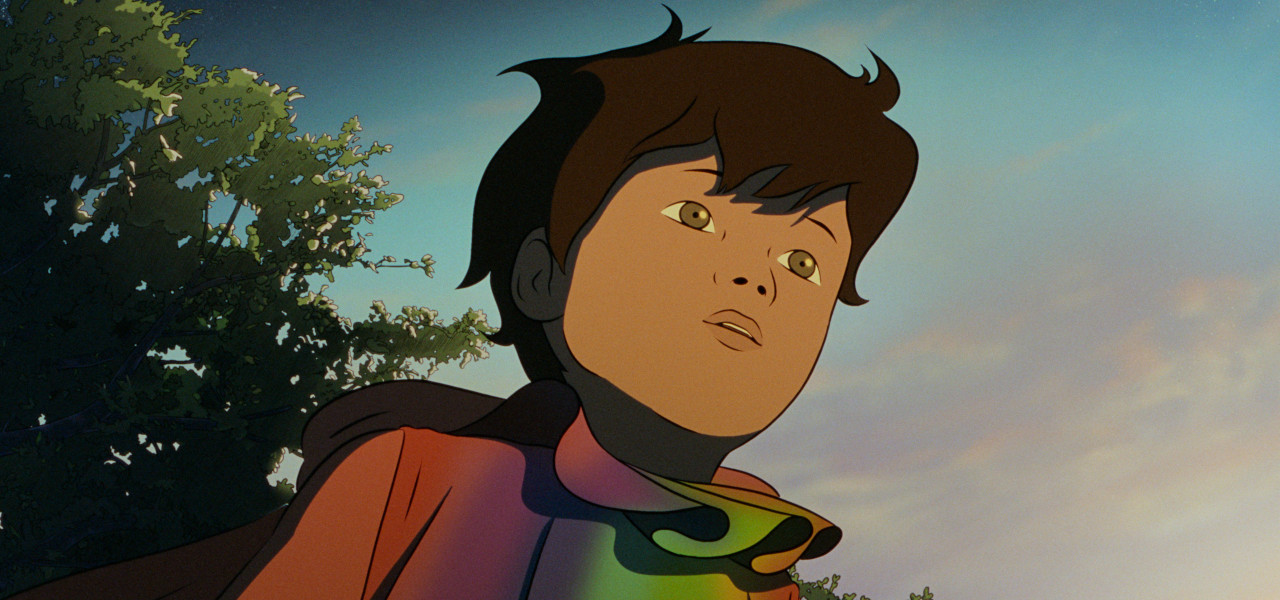Since winning the top prize in Annecy back in June, Arco has become one of the buzziest animated movies of 2025 for both fans of the medium and awards prognosticators.
A sci-fi epic and an intimate story of connection between two children, Arco pulls off a storytelling magic trick in balancing those two tones. Arco is the youngest member of a family from a distant future who gets his hands on some time travel technology, sending him back to our near future, where he and his new friend Iris have to find a way to get him home.
This week, the Neon-distributed film continues its world tour at the Toronto International Film Festival with its director, Ugo Bienvenu, and one of its producers, Natalie Portman, in tow.
Arco marks Bienvenu’s feature debut, the director having also helmed a long list of shorts dating back to 2009, as well as co-directing on 2017’s Ant-Man animated series. Portman became attached to the project through her production company MountainA, which got involved in Arco midway through production. Arco is the first animated project boarded by MountainA since its founding in 2021.
Cartoon Brew caught up with Bienvenu and Portman from Toronto to chat about the film’s origins, Portman’s role as a producer, and Bienvenu’s visual influences.
 Ugo Bienvenu headshot © Remembers – MountainA
Ugo Bienvenu headshot © Remembers – MountainA
Cartoon Brew: The film achieves a great balance between the scale of the story and the intimacy of the character dynamics. Could you talk about developing the idea and striking that balance?
Bienvenu: We understand [bigger] ideas when we recognize ourselves [in them], and this is why I wanted to have something intimate. But at the same time, if you want to speak to everybody, you have to be really precise because if not, you speak to nobody. I think you have to start from preciseness if you want to be universal, because if you try to be universal at the beginning, sometimes you end up being too simple. I always think about that when I work, going from small details to a bigger scope, and beginning simple to get complex.
For you, Natalie, what drew you to the project, and at what stage of production was the film when you got involved?
Portman: What drew me to the project was Ugo’s incredible vision and his incredible art. I thought the beauty of the animation was unique and something I’d never seen before, and then the story had this incredibly hopeful, also very imaginative, inspiring way to see the future and the challenges we face today in a way that was appropriate for kids, too. Our good friend Jamil Shamasdin introduced Sophie [Mas], my business partner in our production company, and me to Ugo and his partner, Félix [de Givry], about three and a half years ago. So we saw early animatics and read the script, and from there we were just so lucky to be part of this journey.
What did your role as a producer involve?
Portman: Sophie and I were involved with Ugo and Félix on everything from getting the financing to the mixing, the editing, every stage has been incredible, and Ugo and his team are just unbelievable.
Bienvenu: What I can also say is that MountainA helped us protect the heart of the movie and the balance of it, and to get it as pure as we wanted until the end. So we were really lucky.
How did you go about developing the film’s aesthetic?
Bienvenu: I don’t know if I’m the best person to say because it’s just my style. It’s a style I use in every illustration I do, in every short I make, in every ad, in every comic book. But what I can say is that my style is global. I lived in America, Guatemala, Mexico, Los Angeles, Chad, and a bit in China. It’s a mix of different cultures, different colors. I think my colors come from Mexico, mostly. I don’t know why, but I think it’s relevant. It was an important part of my life because I was between 10 and 14, so it’s a time when things get deep into you. Also, I love Japanese animation, from Dragon Ball Z to Miyazaki. So it’s a blend of all that, but in an unconscious way. I never work while watching other people’s work, because it would be too fast to digest.
I’ve seen Arco described as France’s answer to Ghibli. How does that make you feel?
Bienvenu: No, [not at all]. To me, Miyazaki is the best artist of all time because he puts together things that I’ve never seen while managing so many professionals. Making an animated movie is putting together many people with different specialties. Managing to do that and succeeding at doing that is incredible. Disney was the same. Both of these guys, when I first watched their movies, I was like, “Wow, this is such a gift for humanity that I want to do this too.”
The film ends on a very emotionally complex note. Was that a difficult moment to communicate to younger audiences?
Portman: I think they get it. Some of our favorite animated movies had really emotionally challenging things in them, from Bambi to The Lion King. Very tough, emotional moments. I’ve seen our movie with my kids, and my youngest one too, and she was moved by it. She loved it. It is a scary world that we live in, and I think Arco’s a very hopeful story about how kids can imagine their way into a better future.
Bienvenu: We have to trust the audience and the kids’ intelligence, because they understand everything, and they understand when you lie to them. To me, it was really important to look the kids in the eyes, look their parents in the eye, and say, “This is what we are going through, but if we take things seriously, if we trust in ourselves, we can find solutions.” It was really to give a new breath, a new hope, and a new energy to our kids and say, “Everything is possible, but trust yourself and trust little things.”

